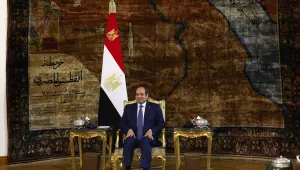Free France, Colonial Reform, and the Genesis of Cold War Counterinsurgency, 1941–1954
Speaker: Nate Grau, Ernest May Fellow in History & Policy, International Security Program
This seminar traces the evolution of France's Cold War counterinsurgency (COIN) doctrine from the Second World War to France's 1954 defeat in Indochina. Grau reveals the underappreciated roles of civilian colonial reformers in this process, tracing a network of "Free French" policymakers circulating from Algeria to the French wars in Madagascar (1947–1948) and Indochina (1945–1954). In each of these revolutionary independence struggles, reformist plans to encourage economic growth and develop local state capacity became tools of counterinsurgent repression that only escalated inter-communal cycles of violence.
Everyone is welcome to join us online via Zoom! Please register in advance for this seminar: https://harvard.zoom.us/meeting/register/tJAud-qurjkpE9LULcdi7fEzEUmflmTOWvYC



